
23 minute read
Questions Asked: Brian Lee Crowley on Canadian foreign policy
Brian Lee Crowley, managing director of the Macdonald-Laurier Institute Canada’s 2019 election: “The most unedifying spectacle I’ve ever had the misfortune of seeing.”
Brian Lee Crowley is managing director of the Macdonald-Laurier Institute, which, according to his biography on the website, “exists to make poor quality public policy in Ottawa unacceptable to Canadians and their political and opinion leaders, by proposing thoughtful alternatives through non-partisan and independent research and commentary.”
Advertisement
Crowley was the founder of the Atlantic Institute for Market Studies (AIMS) in Halifax, one of the country’s leading regional think-tanks, and he is a former Salvatori Fellow at the Heritage Foundation in
Washington, D.C., and a former senior fellow at the Galen Institute, a healthcare policy think-tank also based in
Washington. In addition, he has been a member of the boards or advisory councils of institutes in Canada, the U.S., Nigeria, Britain, France and Brussels.
He holds degrees from McGill and the London School of Economics, including a doctorate in political economy from the latter. He sat down with Diplomat’s editor, Jennifer Campbell, late last year.
DM: From a foreign-policy point of view, what do you make of the federal election results? BLC: It was the most unedifying spectacle I’ve ever had the misfortune of seeing. There were almost no foreign-policy issues that came up, other than tiny things like our foreign aid. Had the Munk Debate gone ahead, perhaps that would have been different. I suspect there was some degree to which the Liberals didn’t want these issues raised. The reason it didn’t go ahead, I think, is because they felt rather vulnerable on a bunch of foreign-policy issues. On what to conclude about Canada’s foreign policy, I would have been none the wiser the day before the election than the day after.
DM: What would you say are the top three areas that deserved some attention? BLC: No. 1 would be our relationship with China; No. 2 would be our relationship with the United States and No. 3 would be Canada’s relationship with multilateral organizations. I think that world is changing fundamentally and I think Canadians are stuck with a view that Canada is this great nation with respect to multilateralism. But I think multilateralism is under attack. If you think about it, the Chinese always want to deal with you bilaterally. The UN and multilateralism — I think that’s all dead. I noticed on the [October] vote at the United Nations on China’s treatment of the Uighurs that 23 countries voted in favour of the British [statement] condemning China’s mass internment and surveillance of Uighurs in Xinjiang Province. [54] countries voted against. This is not the UN that a bunch of liberal democracies launched after the Second World War. It’s been taken over by thugs and bureaucrats. I think we’re very naïve about international organizations.
DM: Do you think we should pull out of the United Nations? BLC: I’m not there yet. I could see getting there, but I’m not there yet. I just think the General Assembly is a joke now. In a way, the only part of the UN that really matters is the Security Council and the Security Council can do important things, but with both Russia and China enjoying vetoes, [it limits] the issues in which we in the West might like to see it take action. The idea was that the security council was where the world community was going to act through these important institutions — aggression would no longer pay. But we now live in a world in which Russia invades Ukraine and takes back the Crimea and uses its proxies to take back the Donbass — and they really suffer no consequence. I think Russia has essentially won.
DM: You recently wrote a piece for the National Post on what conservatism is. Do you think the Conservative Party of Canada has lost sight of that or were they ever really small-c conservatives? BLC: [The Post is] running a series of pieces about what it is and what it should be. I tried to apply it to a number of issues. Philosophy has consequences and I used those political issues to illustrate how someone who is NDP might feel.
‘I just think the [UN] General Assembly is a joke now. In a way, the only part of the UN that really matters is the Security Council.‘ ‘Conservatism generally is undergoing quite an evolution. Donald Trump is not Ronald Reagan and Boris Johnson is not Margaret Thatcher.’
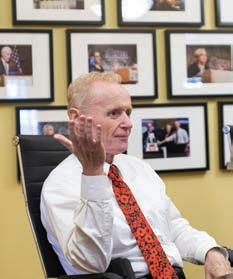
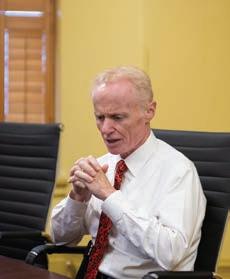
’Victor Hugo said ideas are more powerful than any army in the world, and I happen to believe that’s right.’
FAVORITA_PRINZO_AD_7.25X2.25_print_OCT_update.pdf 1 19-10-28 8:19 PM Conservatism generally is undergoing quite an evolution. Donald Trump is not Ronald Reagan and Boris Johnson is not Margaret Thatcher. I think Canadian conservatives suffer from a disease that is typical of Canada. Canada is not an intellectual place. We don’t appreciate the value of the power of ideas. We’re rather mistrustful of intellectuals. I remember talking to a very senior politician and lawyer in Halifax and I said ‘Do you think I should get involved with politics?’ He said, ‘Brian, you have ideas and the fact that you have ideas will be taken by many people as a reason to obstruct you.’ We don’t really have public intellectuals the way Britain and France and even the U.S. do. It’s hard to appeal to the electorate on that basis. I think you can do it, but none of the people in politics has that ability. Victor Hugo said ideas are more powerful than any army in the world, and I happen to believe that’s right. I look at [an election] and I think, this is the one moment in the average four-year cycle when politicians and the public get to engage in what’s really important. But that didn’t happen. There was no discussion of liberalism, let alone conservatism. If I think about my great political heroes, No. 1 would be Wilfrid Laurier. He was a Gladstonian Liberal — the Grand Old Man of British Liberalism. To be Liberal back then was to believe in limited government, responsible budgeting. Laurier was a staunch believer in this. What does Justin Trudeau come up with from his history? Sunny ways. Any of the things Wilfrid Laurier believed in, I suspect Justin would repudiate. And the same is true of some of the things Pierre Trudeau believed. Trudeau was fundamentally a nationalist. He didn’t want people to be Quebecers first and Canadians second. He felt that the primary identity was Canadian citizenship. Then he allowed you to be anything you wanted, but being united in being Canadian was first. I just don’t believe that this is his son’s vision. Membership in a community is No. 1. To use his expression “there is no mainstream” — his father would have been shocked.
DM: Some voters are saying they’ll start voting Conservative again once the party returns the word Progressive to its name. Do you think that’s important? BLC: People wanted to be understood. The reason it was called the Progressive Conservative Party was because the Conservatives wanted [Manitoba premier] John Bracken to become leader. He had led a Western populist movement [in the 1920s] and he asked that that word be added [when he entered federal politics in the 1940s.] The progressives then were a Western progressive reform party. It’s not so much the dropping of the
La Favorita The Original RISTORANTE • PIZZERIA Since 1986 La Favorita The Original RISTORANTE • PIZZERIA Since 1986
Vegetarian
CASUAL FINE DINING 613 • 749 • 7490 356 Preston St.
diplomat and international canada In 1986, when Nick Shallal came to Ottawa after years in the Mediterranean, he introduced the concept of gourmet pizzas after he opened La Favorita as a small take-out restaurant on Preston Street. Nick pioneered the wood-burning oven to make his designer seafood pizzas and calzones among the best in the Nation’s Capital. Word spread quickly - within a few months, rave reviews appeared in The Ottawa Citizen, The Toronto Star and even The New York Times - bringing so many customers that he had to expand to meet the demand for his delectable pizzas,calzones and salads. The greatfood,friendly atmosphere and mood created by La Favorita’s now famous host and chef, Nick Shallal, have kept everyone coming back. FAVORITA_PRINZO_AD_7.25X2.25.indd 1

613 • 565 • 1328 Since 1969

613 • 276 • 3656
part of the name that matters as the fact that there was a civil war in the Conservative movement since the federal election of 1993 until the two wings came together. It was close to 20 years and what happened was that under the Mulroney government, the reformers felt that the Laurentian elites dominated the Conservative government and they were a minority. They broke away from the party to protest. When they reconstituted the party, the power relationship changed and my view would be that the Westerners are now the predominant group. I’m not one of these people who thinks that the reformers are somehow the great unwashed rednecks of the world, but there is no doubt that there are a lot of people in central Canada who were [once] prepared to vote for more socially moderate conservatives that are now prepared to vote for a party in which the reformers are in the ascendant. The Conservatives came out with the largest vote of any of the three parties. [But] every party is a hopeless minority. No one has constituted a national governing institution. I think that’s because [the Liberals and NDP] were too far on the left. We have two main governing parties that have gone too far.
DM: Is Canada immune to populism? BLC: I keep hearing how Canada has resisted, but we were first. Canada has a long history of reform movements. The first reform party was led by William Lyon Mackenzie in the rebellion in Upper Canada [in 1837.] We have been far more successful in integrating our most recent populist uprising than a lot of other countries have been, but the contempt in which Western reformers are held by a lot of the Laurentian elites is the real explanation of the split between the West and Upper Canada. The Liberal elites are losing power, but they haven’t lost it yet. From a political point of view, I can see why the Liberal Party wanted to put the squeeze on the oil patch because you could see how there was a progressive shift. Had the oil patch continued to thrive as it did through the first 15 years of the 21st Century, this would have fatally undermined the electoral base of the Liberal Party. I’m not at all surprised by some of the things they’ve done in Alberta. I don’t think Trudeau gets the West at all. If he got the West, he’d be horrified. I think if he truly understood the West, he wouldn’t be at all disposed to accommodate it by doing things like hiring [former deputy prime minister] Anne McLellan to tell him what to do.
24 Former prime minister Paul Martin made Canadians understand that balancing the budget was an “important guide to policy,“ Crowley says.
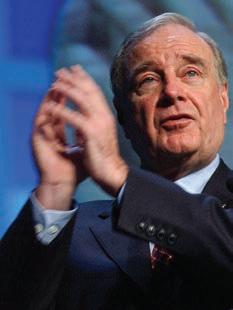
DM: What are your thoughts on government spending and balancing budgets? Are you worried with the Liberals in power? BLC: Am I worried? Yes. Do I think it’s an existential threat to Canada? No, but it’s not a wise policy. I was a great admirer of Paul Martin. He continues to be a friend of mine. I think about the damage that was done to Canada by 25 consecutive years of deficit budgets. And the fact that because of the terrible damage we did, it actually caused, after much effort, a tremendously fruitful agreement across all of the parties that deficit-financing wasn’t desirable. Even the NDP ran on a platform of balanced budgets [in the last 2015 election]. Trudeau is undoing that. He says it’s only to finance the infrastructure. They’ve jettisoned all the good work — the problem is that once you’ve admitted the principle of deficits, there is no anchor. The very powerful thing that Paul Martin did was that he got people to understand that balancing the budget was an important guide to policy. It was a tremendous political feat on [Martin’s] part. I blame [Trudeau] and the current crop of Libs for tossing it out. The thing is, it’s so easy to start [spending] and it’s so hard to stop. There’s nothing politicians like better than promising spending.
DM: What are your thoughts on illegal immigration to Canada? BLC: It’s a moderate concern and it would be a big one if it got out of hand. I’m a big believer and a huge supporter of Canada’s immigration system. I think a reason that Canadians are so supportive of immigration is because they believe we have a reasoned and fair system. Illegal immigration undermines all of those assumptions. The U.S. may be the reason that a great many members of the public have lost faith. There’s somewhere around 14 and 15 million people who’ve come into the U.S. That’s not even a system — that’s just people walking in. People in the Trump coalition have seen their jobs disappear and feel they’re in competition with these masses of people who’ve come across the border. This has caused terrific consternation. If we had 1.5 million illegal immigrants [a proportionate number to that of the U.S] and 40 per cent of them went to the Greater Toronto Area, I think it would be a political crisis of unbelievable magnitude. The last number I saw was 25,000 had admitted themselves at [Hemmingford, Quebec’s] Roxham Road. I look at that number and I think about the fact that we’re admitting 300,000. If it’s the beginning of a trend in which we lose control of our borders and the system, that’s a problem. It’s a warning light flashing on the dashboard. Better to fix it now.
DM: Can you comment on the China-U.S. trade war and how it affects Canada? BLC: I think it’s more than a trade war. The trade part of this is an aspect of a larger struggle between the U.S. and China and it’s got to do with the way that a newly powerful China is behaving. It’s behaving in a way that endangers many of the achievements of the post-war order. That includes their militarization of the South China Sea after they promised they wouldn’t. You think about Asia and Taiwan and about where they get their energy from. A lot of it comes from the Middle East through the Strait of Hormuz to the Strait of Malacca, and China has established its ability to close off Asia’s energy trade. They also made all kinds of promises about how they would behave in the trade world. We admitted them to the World Trade Organization. They lied about all of it. When it suits them to discover health issues with Canadian canola, they just do it and they don’t care whether they’re in violation of trade rules. If there’s one thing that Democrats and Republicans agree on it’s that the U.S. has to [stand] up to China on issues such as freedom and the protection of IP — they have built their industrial might to a very large extent by
stealing the intellectual capital of the West. I think Nortel’s collapse was in part due to pillaging of IP by China. Donald Trump is using tariffs, among other things, as a way to get China to alter its behaviour, to get them to behave as a more responsible member of the community. I think he has the complete [political] backing of Washington on that. [With respect to Canada,] I think this is a terribly important character test. Just look at what some of the leading figures in the political class said about this. There’s a former deputy prime minister who said we should have fumbled the arrest and let it go. There are a lot of pacifists and appeasers out there. What’s happened is we, as a society that operates under the rule of law, said we had a legitimate request from an ally and we arrested, in accordance with the law, Meng Wanzhou [chief financial officer of telecom giant Huawei. The daughter of Huawei’s founder, she was detained based on a U.S. request for her extradition on charges of fraud concerning trade with Iran.] The case will be tried. The only reason we’re doing it is because [the U.S.] is asking us to. The Chinese could have gone after the U.S. — but they didn’t. We’re in a position where we have our commitment to the rule of law in the balDonald Trump is using tariffs as a way to get China to behave the way he wants it to.
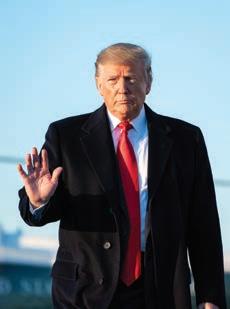
ance against a bunch of business leaders. That’s why I think this is a character test. Canada is being asked what’s really important to you and if the answer is selling more canola, that’s a concern.
DM: Put that way, there are a lot of similarities with the SNC Lavalin affair. BLC: I was one of the people who believed that SNC was very much an issue of the rule of law and I know that the government didn’t want it seen as an issue of rule of law. We have a prime minister who says, ‘I’ll never apologize for standing up for jobs.’ It’s like a bank robber who says he was robbing the bank to feed his family.
DM: What are Canada’s most pressing policy issues? BLC: Our relationship with China is No. 1. I think reconciling the various parts of the country is terribly important and reconciling our great strength as a world storehouse of natural resources with our commitment to living in a way that’s environmentally responsible is essential. China chose to go after Canada [in the case of the arrest of CFO Meng Wanzhou] because they think Canada is a country that can be bullied. My view of what has to happen is that we have to demonstrate to China that we’re not a country to be bullied. There are lots of things that are entirely proportionate to what China has done to us. I don’t think the Chinese have finished. They’re trying to weaponize the Chinese diaspora. There are all kinds of
RBC Dominion Securities Inc.
How much are you paying for financial advice?
As an investor, it’s important that the services you receive are worth the fees you pay. Get the comprehensive guidance you deserve. Contact us today for a complimentary second opinion on your portfolio.
Pierre Tipple, Associate Advisor to Mark Ellis, Investment Advisor 613-566-4515 or visit www.rcbds.com/mark.ellis.
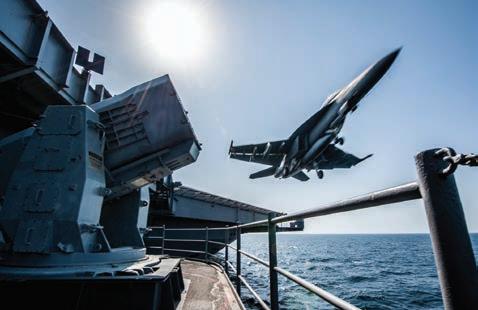
The U.S. decision to withdraw from Syria, which it later reversed, caused damage to its reputation as a dependable ally, according to Crowley.
things going on that are deeply worrying. The Chinese have more diplomats in Canada and the U.S. They are very interested in Canada. I think we need to become closer to Taiwan and we need to be much more vocal in our support of one country two systems in Hong Kong. China’s entirely responsible for the issues in Hong Kong. And we should ban Huawei’s [5G network] on national security alone. If we took those actions, we would signal clearly to China that we’re not a country to be bullied. Sometimes Canadians think of Canada as a small country, but we’re a member of the G7. Canada needs to play a leadership role in pulling together the people in the international community to act against China.
DM: What should Canada be doing about the imprisoned Canadians — Michael Spavor and Michael Kovrig — in China? BLC: Logically, China should be pressing the U.S., not Canada, on the Meng issue since it was at [the U.S.’s] request that we arrested her and we would release her if the Americans withdrew their request. China is pressuring us because they think we can be bullied into abandoning the rule of law, whereas the U.S. cannot. We should take increasingly vigorous steps to make it clear to China that we cannot be bullied and they are barking up the wrong tree. The advantage is that all of the measures we should take are fully justified in their own right and should be Canadian policy in any case. We have just held back out of fear of of
26 fending China. That should be very low on our priority list now. The measures we could take include: closer relations with Taiwan; requiring China to reduce the size of [its] diplomatic contingent (now the largest of any country in Canada); passing legislation to prevent foreign agents from attempting to press Canadian citizens and residents to do their bidding; banning Huawei from our 5G network; pursuing closer trading relationships with actual or potential partners in the Indo-Pacific; participating in more freedom of navigation and military exercises in the South China Sea and the Taiwan Straits; and speaking out more forcefully on China’s failure to honour its commitments in Hong Kong. Whatever we do, we cannot allow the fact that China is arbitrarily detaining two of our citizens to cause us to abandon our principles and commitments. Otherwise every foreign power that wants Canada to change its policy will understand that the way to do so is to kidnap Canadians until we cry uncle. We cannot possibly run our foreign (or any other) policy this way. It is the same logic as why we cannot negotiate with terrorists.
DM: What do you make of the U.S. policy in Syria, vis-à-vis the partial withdrawal and the situation with the Kurds and Turks? BLC: This has severely damaged [the U.S.’s] reputation of being a dependable ally, ceded a strategic position in the Middle East to Russia and, in practice, encouraged the lawless behaviour of our supposed NATO ally — Turkey — in the region. It will be very hard in future to get strategically valuable groups and nations, like the Kurds, to take risks on behalf of the West’s interests. Canada’s priority in troubled regions like this should not be taking in large numbers of refugees (although there is nothing wrong with doing so). It should be to contribute to creating the conditions in which people do not need to flee their home regions in the first place. If they have to leave their homes, it is understandable that many of them would love to come to Canada. The point, however, is that they generally do not wish to leave their homes and if they could be made safe and secure in their home region, that is the optimal solution.
DM: You’ve written about supply management in the past. What do you think of Canada’s current position on it? BLC: Inexplicable, indefensible, costly — to both consumers and to Canada in its relations with its trading partners — and dumb.
DM: With respect to trade, are we on the right path? What trade agreements should we be pursuing most vigorously? BLC: To the extent we are on the path of trade liberalization, that is all to the good. We need to remember, however, that authoritarian state-dominated countries such as China are by their nature not reliable, stable or trustworthy trade partners. They do not play by market rules. Pursuing ‘free trade’ with them is essentially a policy of allowing them to use their corporations — all [of which are] under state control or domination — to become instruments of a foreign government’s policy on our territory. Our priority should be the formal adoption of NAFTA 2.0, working with Japan to encourage the U.S. to re-engage on trade with its friends and allies in the Indo-Pacific to help establish the architecture of a grouping of like-minded countries in the region that are bound together by ties of trade, values and security.
DM: If Trudeau asked you for your policy prescription on foreign policy for the next four years, what would you say? BLC: Stop focusing on China as a way to diversify away from Canada’s dependence on the U.S. Whatever [the U.S.’s] failings, dependence on China would be far worse in every way. That said, American leadership of the Western alliance is faltering and uncertain. Canada is one of the countries that has
most benefited from the existence of the alliance and from American leadership. Our foreign policy should have two chief aims. First, [we should be] working with other middle powers (such as Britain, Germany and Japan) to get [the U.S.] to re-engage with and to lead energetically the multilateral institutions it was so instrumental in creating in the post-war era. Second, we should be a leading voice among the middle powers, calling for them collectively to take up the mantle of leadership where American insularity leaves us no choice.
DM: And what about immigration policy? BLC: Our current target of admitting the equivalent of roughly one per cent of our population annually is probably about right, although those who argue that this is necessary to maintain economic growth are quite wrong. Remember, however, that immigration comprises three streams: refugees, family reunification and economic class. The economic class is the most valuable for Canada. It is the one where immigrants are chosen on the basis of their ability to contribute to the Canadian economy and this is becoming more important as a large portion of the Canadian workforce passes into retirement. But the weight of this class within the immigration numbers overall is declining relative to the other two classes and this is the wrong priority for Canada.
DM: What, if anything, should Canada do to repair the Canada-U.S. relationship? BLC: The relationship is basically sound. We shouldn’t attribute too much power to the U.S. administration, which is only part, and not that big a part, of American society to which we are bound by ties of history, affection and interest. The worst thing we can do is to assume everything is going to hell in a handbasket and run around with our hair on fire. Donald Trump is ignorant about Canada and cares little about [the U.S.’s] traditional commitments and allies. Previous presidents have dealt grievous blows to Canada-U.S. relations — think of Nixon’s trade policies, to pick just one example. This, too, shall pass. Canadians must not let their visceral dislike of President Trump cause them to misunderstand [the U.S.’s] enduring interest in strong and positive cross-border relations. We must continue to build on that strong base, not tell ourselves fables about the relationship being broken because it is politically fashionable to say so. D
DENTAL Séguin
With over 35 years in practice, we are dedicated to personalized patient care, predictable outcomes and great communication.
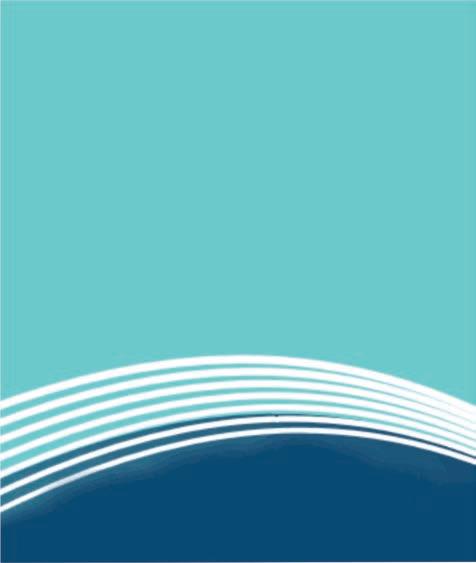
We pride ourselves in creating a safe and comfortable environment for our patients, with state-of-the-art equipment and services in both French and English.
Let o ur f amily t ake c are o f y ours

Dr. Bruno Séguin Dr. Anne-Marie Séguin Dr. Catherine Séguin











